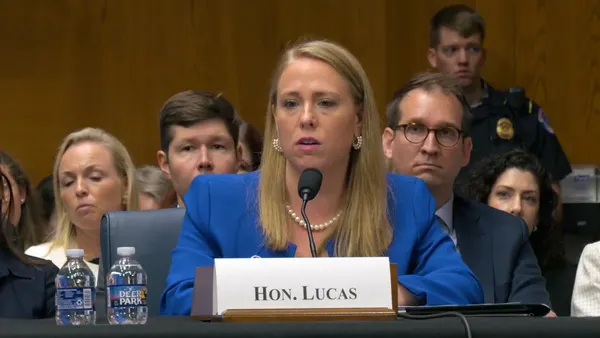Dive Brief:
- A district court erred when it granted a partial victory to the U.S. Postal Service in a former mail clerk’s Family and Medical Leave Act lawsuit because the court wrongly interpreted a FMLA medical certification as placing a “hard cap” on unforeseeable intermittent leave, the 6th U.S. Circuit Court of Appeals said in an Aug. 21 decision.
- The plaintiff in Jackson v. USPS took FLMA leave to care for flare-ups associated with sickle cell anemia. He was approved to take two days of intermittent FMLA leave per month for his condition, but USPS also limited the number of unscheduled absences he could take. USPS terminated the plaintiff after he allegedly exceeded this limit, but the plaintiff disputed USPS’ conclusion that the unscheduled absences were not covered by the FMLA.
- The plaintiff alleged USPS violated both the FMLA and the Rehabilitation Act by firing him. A district court partially granted summary judgment to USPS, holding that the amount of absences exceeded the plaintiff’s two-day-per-month FMLA cap. The 6th Circuit reversed, however, stating that a hard cap could not be provided for the plaintiff’s condition because his flare-ups required intermittent, unforeseeable leave.
Dive Insight:
The FMLA is historically a complicated law for employers to administer, particularly where intermittent leave is concerned. Attorneys who previously spoke to HR Dive have said that intermittent FMLA leave presents challenges both because it can be difficult to recognize the initial need for intermittent leave and because of the certification process to verify that need.
In Jackson, USPS requested medical certification from the plaintiff, whose physician informed USPS that the frequency of the plaintiff’s flare-ups was twice per month. USPS took this to mean that he was limited to just two days of FMLA leave per month, but the 6th Circuit disagreed, writing that such an estimate on a medical certification for intermittent unforeseeable leave could not create an exact limitation on the number of FMLA days an employee can take.
“Intermittent leave, by its nature, can be foreseeable or unforeseeable depending on the condition,” the 6th Circuit said, adding that the plaintiff’s condition “is different from someone who may get a medical certification for intermittent foreseeable leave. In that case — where the leave is foreseeable — then a medical certificate could potentially limit the number of leave days an employee might require. This is not such a case.”
The FMLA guarantees to eligible employees 12 workweeks of unpaid, job-protected leave for qualifying family and medical reasons during a 12-month period. But the nature of unpredictable symptoms “tends to result in a medical certification that cannot give a clear number of days an employee would need off monthly,” the court continued, and a certification’s listing of the number of leave days an employee may need is “merely an approximation or estimate.”
However, such a certification does not mean that an employee can take leave in whatever increment they choose, per the 6th Circuit. Leave arrangements must “properly balance the employee’s interest with those of the employer,” the court said, citing earlier precedent.
The decision aligns the 6th Circuit with the 7th and 8th Circuits on the subject of whether the number of days listed on a certification constitutes a cap on unforeseeable FMLA leave, Eric Meyer, partner at Pierson Ferdinand, wrote in an analysis.
The 6th Circuit covers Kentucky, Michigan, Ohio and Tennessee.














